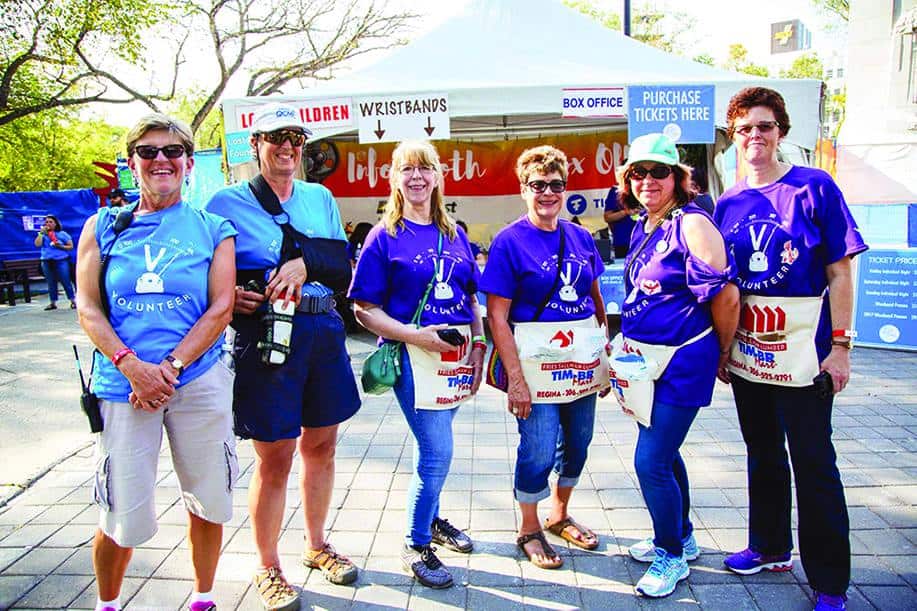Saskatchewan named number one in arts volunteers

author: mac brock | a&c editor

An incredible 650 locals donated their time to make the Regina Folk Festival run this season. Photo credit: Rae Graham
Melanie Metcalf tells us why Reginans work free, then come back for more.
Ask any artist: the arts do not run on cash flow. They run on heart and unpaid elbow grease. Regina, as a tight-knit community, has a huge need for volunteers to make shows and events possible. According to a Hill Strategies survey, 900,000 Canadians volunteered over 107 million hours over the course of 2013. The same survey showed that while Canadian volunteerism went up 7 per cent across all sectors, the arts and culture sector saw a stunning 23 per cent increase.
With this huge number of volunteer man hours going into the sector, people across the country devote their lives to organizing and leading the troops. One of those people in Regina is Melanie Metcalf volunteer & outreach coordinator for the Regina Folk Festival.
She suggests the spike in the arts sector is because “the arts can confidently rely on volunteer power, because it’s a sector that attracts passion and inspires compassion.”
Saskatchewan has a reputation for volunteerism across Canada. Hill estimates that 5 per cent of Saskatchewanians volunteered in arts and culture in 2013, higher than any province in the year.
“It’s our small town hospitality,” says Metcalf, who oversaw almost 800 volunteers in 2016.
Events she has coordinated have “[attracted] people from all over the world to our fine city…[people] who reside in London, England come home to Regina to volunteer.”
A large portion of artist salaries come from government funding programs including the Canada Council for the Arts and Saskatchewan Arts Board. The Trudeau government received major criticism for their decision to double their nine-figure investment in the Canada Council earlier this year, though recent numbers suggest that for every $1 invested, the sector returns almost $1.25 to the GDP [gross domestic product]. Over 60 per cent of people working in the arts sector (including executives, managers, and the artists themselves) earn less than $50,000/year. That number drops to less than $10,000 when only factoring independent artists.
Because of the low-income lifestyle for arts and culture employees, “they have to be willing to ask for help when compensation is unbalanced,” Metcalf adds.
With the work done by volunteers valued at nearly $2 billion nationwide, the benefits of volunteering often come into question.
“People volunteer for a variety of reasons,” says Metcalf, “but everyone who volunteers is doing it because they have a kind heart…I started as [a Regina Folk Festival] volunteer actually, and it began out of wanting to be involved and also getting a free weekend pass to a sweet music festival as a penny-pinching student.”
Regina is often perceived as having an arts core lacking in manpower or activity, but Metcalf believes this may be a misconception.
“The community of arts volunteers are the ones who are patrons, students, advocates, lovers, and friends of the arts…the volunteer community constantly surprises me with its size and its loyalty.”
But that’s not all they get, she has noticed. “People volunteer as a way to give back, meet people, see a side of an event they never get to see…I’ve recently started to joke that volunteering is the original Tinder, Voluntinder.”
Melanie Metcalf is one of the thousands of people who keep the heart of the arts in Regina beating, and it surely is not always the most appreciated job. She has a simple answer to why she stays in the business:
“I get to work with the finest people our arts community has to offer…My job involves working alongside generous people that give up their own time away from their busy lives for something that’s larger than them…The longer I’m lucky enough to do this, the more in love I fall with Regina and the people who call it home.”









